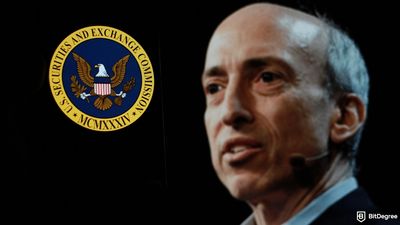The United States Securities and Exchange Commission (SEC) recently found itself under fire from two of its own commissioners following a $750,000 settlement involving Flyfish Club, a non-fungible token (NFT) restaurant.
In a September 16 cease-and-desist order, the SEC argued that the Flyfish NFTs represented an unregistered sale of crypto asset securities through 1,600 NFTs, which generated approximately $14.8 million in revenue. The Flyfish NFTs granted holders access to a high-end restaurant in Manhattan that is expected to open this month.
In response to the order, SEC commissioners Hester Peirce and Mark Uyeda voiced their disagreement, contending that the NFTs in question were merely an alternative form of membership sales, which should not be subject to securities regulations.

Did you know?
Want to get smarter & wealthier with crypto?
Subscribe - We publish new crypto explainer videos every week!
What is a Bitcoin & How Does it work? (Animated Explainer)


The SEC justified its enforcement actions by referring to the Howey test, a legal standard used to determine if certain transactions qualify as investment contracts and, therefore, fall under securities laws. The Flyfish NFTs, according to the SEC, satisfied all test criteria.
While Flyfish did not admit guilt in the settlement, it agreed to destroy any remaining NFTs in its possession and not collect royalties from future secondary sales.
In their statement, Peirce, often referred to as "crypto mom," and Uyeda emphasized:
Creative people should be able to experiment with NFTs without having to consult a high-priced tea-leaf reader—ahem, lawyer. The Commission can change its menu to include a healthy serving of guidance to give non-securities NFT creators the freedom to experiment.
This enforcement action is just one of several taken by the SEC against NFT-related projects. Over the last year, the SEC has targeted prominent NFT ventures such as Impact Theory and Stoner Cats 2.
In response to the growing regulatory pressure on NFT creators, artists Brian Frye and Jonathan Mann sued the SEC in July to clarify whether NFTs created by artists must be registered before they are sold publicly. Jason Gottlieb, one of the attorneys representing the plaintiffs, said:
Art is not a security, and musicians working in a digital medium should not have to hire expensive securities lawyers just to release music.
Overall, the Flyfish Club case highlights the debate over the regulation of NFTs and crypto in general, underscoring tensions within the SEC itself over how to balance innovation with investor protection.






















